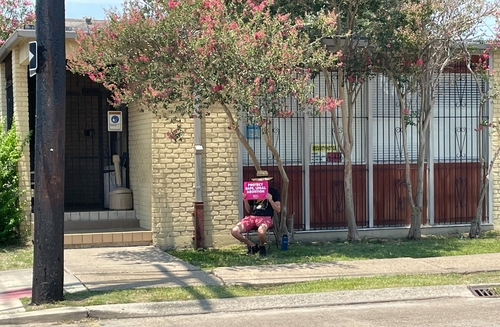Louisiana bans abortion after Supreme Court ruling

Louisiana automatically banned almost all abortion in the state after the U.S. Supreme Court overturned its landmark Roe v. Wade decision Friday morning. The state’s three abortion clinics – in Baton Rouge, New Orleans and Shreveport – stopped administering abortions within hours of the court’s decision.
“We are suspending performing abortions as we decide our next step with our legal team,” said Kathaleen Pittman, who manages Hope Medical Group for Women, an abortion clinic in Shreveport. “As you can imagine, we have devastated patients already here today so we are concentrating on them and assisting them with their options.”
Abortion rights supporters and abortion clinics may try to challenge the ban – or at least delay its implementation – through the courts. If so, Attorney General Jeff Landry said he is prepared for a legal fight. He and Gov. John Bel Edwards’ administration believe the ban is already in effect.
“My office and I will do everything in our power to ensure the laws of Louisiana that have been passed to protect the unborn are enforceable,” Landry said in a written statement.
The Louisiana Department of Health, under the governor’s control, sent the abortion clinics notices Friday informing them that a statewide abortion ban was in place.
“The Louisiana Department of Health expects your clinic to abide by the Louisiana laws on abortion,” it said.
Louisiana’s trigger law was supposed to immediately outlaw almost all abortions if the Supreme Court threw out out Roe v. Wade. The justices ruled 5-4 to scuttle Roe after siding with the state of Mississippi over that state’s only abortion clinic, Jackson’s Women Health Organization, in an abortion restriction case.
Abortion rights are consistently supported by a majority of people in nationwide polls, but Louisiana is one of a handful of states where abortion restrictions and bans have been favored, according to statewide surveys. Louisiana anti-abortion advocates praised the Supreme Court’s ruling Friday.
“This is the beginning of a post-Roe era and post-Roe Louisiana,” said Gene Mills, president of Louisiana Family Forum, a conservative Christian group that has pushed abortion restrictions for years. “I’ve been waiting for this moment my entire adult life.”
Louisiana’s ban makes abortion illegal in almost all cases. The state’s trigger law only allows for exceptions if a pregnant woman’s life is in danger from a physical illness or a pregnant woman could otherwise sustain “serious, permanent impairment of a life-sustaining organ.” Abortion procedures can also be used to treat miscarriages and ectopic pregnancies.
Under the ban, pregnant people whose life might be at risk because of suicidal thoughts or another mental illness cannot use those conditions to access an abortion in Louisiana. A pregnancy that results from rape or incest is also not eligible.
Those who perform illegal abortions – including the prescription of medication that induces abortion – will face up to 10 years in prison and a $100,000 fine.

Louisiana also has a law prohibiting of out-of-state individuals and organizations from sending abortion medication to people in Louisiana, though it’s not clear to what extent that statute can be enforced.
Critics of the out-of-state medication ban have argued it runs afoul of the U.S. Constitution, which gives the federal government the authority to regulate trade between states. Louisiana authorities also might not have the ability to punish out-of-state abortion providers, effectively making the law toothless.
Abortion medication is also only effective through the first 10 weeks of pregnancy, after which a person needs to have an in-person surgical procedure to end a pregnancy.
Under the ban, Louisiana residents who want in-person abortion services will have to travel several hours to a clinic, as all the states that surround Louisiana are also expected to outlaw abortion. Abortion rights supporters say the travel distance will have the largest effect on poor people.
Illinois and New Mexico are the closest states to Louisiana with liberal abortion access. Florida will also offer legal abortion, but after July 1, it will only be available for people during the first 15 weeks of their pregnancy.
Friday’s Supreme Court ruling comes after over a month of increased tension following a leaked draft of the opinion, which indicated that the court was likely to overrule abortion rights. In the weeks since the leak, the Shreveport abortion clinic continued to see as many patients as it could.
“I tear up thinking of those women being denied access to care,” Pittman said in an interview last week.
A Louisiana abortion ban is the culmination of a successful, decades-long campaign that had already chipped away at abortion access in the state. In 1999, there were a little over 12,000 abortions carried out in Louisiana, according to data from the state Department of Health. Last year, there were just 7,500.








